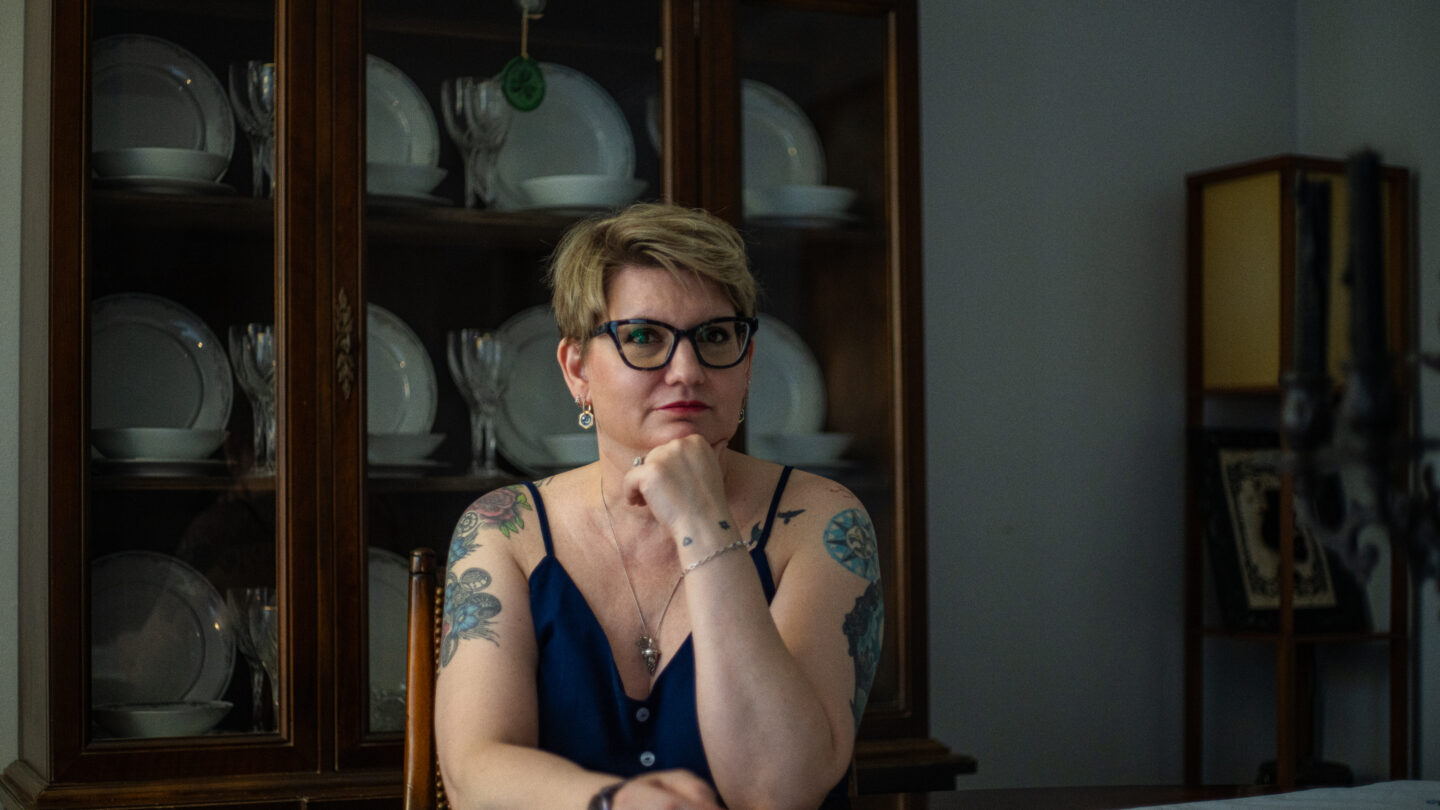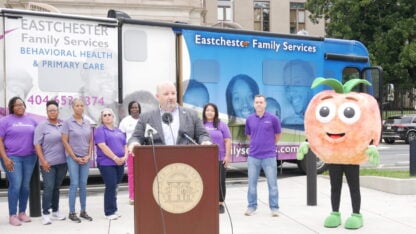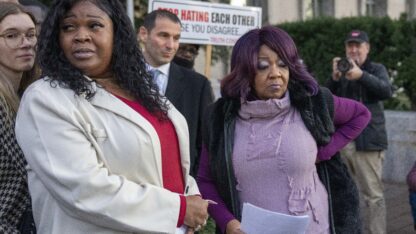When COVID-19 first hit the United States, Kennesaw nurse Laura Price was working at a doctor’s office north of Atlanta, caring for increasing numbers of patients who ended up in the hospital.
“And I remember saying to the girls that I worked with, I don’t know what this is, but this is the worst sickness that I’ve ever seen,” she said. “And I had already experienced another pandemic because I was in Pediatrics when we had H1N1.”
Soon after she treated someone with the same telltale respiratory symptoms, Price got sick.
“And I felt like every single bone in my body was going to break,” she said.
It was February of 2020.
“My husband actually woke me up at around 4 a.m. He rolled over, he wasn’t even touching me, and he could feel the heat just radiating off me,” she said. “I had between a 104 and 105-degree temperature for about six days.”
As soon as it was safe, she went back to work.
“Because they needed us,” Price said. But some of her aches and fatigue never totally went away.
Then almost a year later, Price got sick with COVID-19 again. This time, she couldn’t keep food down for weeks or concentrate on anything. She was exhausted, she said.
“It was extreme fatigue,” she said. “The thought of just getting up and walking up a flight of stairs was like, I can’t do it.”
She recovered for a second time, but the relief didn’t last. A few months later, the stomach pains and bloating started.
“The type of pain where you would stop and go, Ooh, and bend over. It got really almost unbearable,” she said. “One night, I thought I was having appendicitis.”
At other times, she thought maybe it was her gallbladder or something else. The pains came and went. They were hard to pin down.
It wasn’t until earlier this year that a doctor connected Price’s symptoms with long COVID — researchers have identified a link between COVID-19 and gastrointestinal problems.
“People have lost their livelihoods, their means of supporting themselves as a result of severe long COVID. So we need that empathy, that recognition.”
Dr. Ighovwerha Ofotokun
Price is still undergoing tests. But, so far, scans have confirmed that she has kidney stones and diverticulosis.
“I’m still not myself. But I’m getting there and at least I’m on the road to some answers,” Price said. “Everybody wants an answer. Anything to help somebody else down the line so that they don’t have to go through what I went through.”
Answers are what Emory University Professor of Medicine and infectious disease expert Dr. Ighovwerha Ofotokun wants too. He previously worked on the COVID-19 vaccines, and now he’s helping to lead national research studies investigating long COVID.
“Who is getting it? How they are getting it? How are they recovering? What is it doing to the body? What is the mechanism of disease? So that we can then find a target for treatment,” he said.
More than three years into the pandemic, there are still many more questions than answers about long COVID, the mysterious constellation of symptoms affecting between 8 million and 23 million Americans, according to the U.S. Department of Health and Human Services.
Ofotokun is a principal investigator at the Atlanta research hub for the National Institutes of Health’s $1.15 billion RECOVER Initiative. Launched in 2021, it also includes researchers from Morehouse School of Medicine, Grady, the Atlanta VA and Kaiser Permanente of Georgia.
He also chairs RECOVER’s national adult cohort coordinating committee for the project, which is recruiting tens of thousands of study participants across the country.
It recently opened enrollment for several phase 2 clinical trials to evaluate potential treatments and therapies for the condition.
Long COVID can affect nearly every tissue and organ in the body and there are many theories about its causes.
One relates to viral persistence, where a patient recovers from an acute SARS-CoV-2 infection and even tests negative for COVID-19, but traces of the virus remain in the body.
The virus revs up the immune system, Ofotokun said.
“Your defense system is just fighting against anything it can find, including the virus and part of your body,” he said. “And some people are not able to withstand that, and the damage has been done.”
There’s a lot more research to be done on long COVID, but Ofotokun said he’s confident scientists will eventually discover treatments to help people suffering from its symptoms.
“People have lost their livelihoods, their means of supporting themselves as a result of severe long COVID. So we need that empathy, that recognition. And then there should also be a sense of urgency on the part of everybody to want to find a solution to this,” he said.
The most recent weekly survey data from the U.S. Census Bureau’s Household Pulse Survey found more than a quarter of Georgians who have had COVID-19 have experienced symptoms of long COVID lasting three months or longer.
“This is a real thing,” said U.S. Centers for Disease Control and Prevention Director Dr. Mandy Cohen. “The good news is we’re seeing some early data — and it’s still just early data — that if you are getting vaccinated and you’re up to date on those vaccines, and you are taking advantage of treatment, you are less likely to get long COVID.”
It’s been a tough couple of years, said nurse Laura Price on a recent weekday at her home in Kennesaw. Still, she said she’s grateful she’s able to continue working when so many people with long COVID are debilitated.
But the condition has taken a toll, she said.
“I have always been the type of person to go, go, go, go, go,” she said. “And I give a lot at work, but I have noticed that I have slowed down at home. I don’t have a lot of energy when I get home as much as I used to.”
Reinfection is another constant worry, especially as Georgia is seeing another uptick in COVID-19 patients.
“But I’m not going to let it get me down. I got people who depend on me and patients I got to take care of. I got a husband I love very much.”
John, Price’s husband, is also learning to adapt to long COVID.
Patience is key, he said.
“Patience and general awareness is something that you have to have at the forefront all the time with somebody with long COVID,” he said. “You may be ready to get up and go and get it done. And for them, it’s just that they haven’t spun up fast enough yet, and they’re not feeling good.”
This is their life now. That is, until there are effective treatments for people living with long COVID










